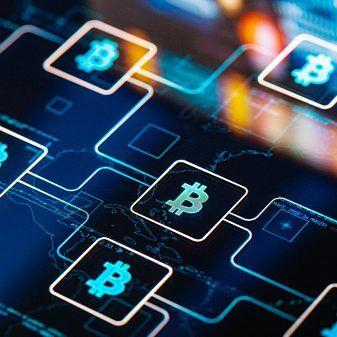The Most Important Blockchain Developer Skills in 2022
Written by Mario Agüero|Posted on December 16, 2022

The cryptocurrency market is frequently front-page news nowadays, but that’s just the tip of the iceberg when it comes to the uses of blockchain technology.
As well as providing the basis of cryptocurrencies and NFTs, blockchain is also gaining popularity as a tool to improve efficiency and cut down on overheads in a variety of industries, from VR gaming to fintech to e-commerce and more. By using decentralized blockchain ledgers, smart contracts, and cryptocurrency payments, companies are cutting out levels of bureaucracy and middlemen that used to drag down business processes in the past.
Even as the cryptocurrency market remains highly volatile, national governments around the world, including the US, China, and EU members, are developing national central bank digital currencies (CBDCs), which will introduce blockchain to state economic policy.
With all that in mind, it’s no surprise that demand for blockchain developers has soared in recent years, increasing by over 300% in 2019 alone and topping the lists of most desired tech skills since 2020.
It seems that blockchain has passed a tipping point and is going mainstream, and many businesses have a lot to gain from adopting the technology earlier, or at least more intelligently, than their competitors. Whether you’re a company looking to decide which type of blockchain developer to invest in, or a new developer trying to choose an area to focus on, these are the most in-demand blockchain skills to have right now.
Broad, Up-to-Date Understanding of Blockchain Technology
Simply understanding what blockchain only goes so far. Broadly speaking, it refers to a distributed network that creates a tamper-proof database of transaction records that is both secure and transparent. The most famous blockchain network is bitcoin, but the network behind the oldest cryptocurrency is not scalable and unlikely to have business applications.
Instead, look for developers that can show knowledge of multiple blockchains, including the most recent projects, and demonstrate an awareness of their applications. Ethereum, for example, is more scalable, the basis of NFTs and smart contracts, and on the cusp of a major upgrade to speed and energy efficiency. But even Ethereum is challenged by the likes of Cosmos, Solana, and Cardano. As different blockchains continue to permeate the business world, interoperability between blockchains will become a high-priority target for innovation.
An ideal blockchain developer should be able to demonstrate a good knowledge not just of the fundamentals of distributed networks, but also aware of the many ways the industry is developing, to best build an innovative solution for your company.
Cybersecurity and Cryptography
Wait…isn’t all blockchain tech based on cryptography? And aren’t blockchains 100% secure? The fact is, that there’s more to the story than that. Blockchain’s nature as a decentralized distributed ledger does make it extremely difficult to hack, thanks to communal oversight from all network nodes. But blockchain breaches have occurred, and the presence of huge amounts of valuable cryptocurrency on the networks has made blockchains tempting targets for hackers, leading to an arms race between attackers and information security experts.
The same principle applies here as with other technologies—the best security experts know both cybersecurity and the framework that they are trying to protect. So blockchain developers should be intimately familiar with blockchain architecture, the main risks, and techniques to safeguard them. These include cryptographic techniques such as public-key cryptography (for validating transactions) and cryptographic hashes (for securing the blockchain).
Smart Contracts
The main utility of blockchain in the business world comes from smart contracts. Smart contracts are effective contracts between different parties that are written as code on the blockchain. When the agreed-upon conditions are met, the contract self-executes, transferring currency as payment for services, updating a database with new information, granting access to certain individuals, and other functions. This is what makes blockchain an instrument for simplicity and speed, not a complicated add-on to a business model.
Smart contracts carry out many complicated business activities, such as payroll, logistics, validations, etc., much faster and more securely than humans, so it’s no surprise that experience in building these continues to be an in-demand skill.
Cross-Disciplinary Skills
To be competitive in the market as it stands in 2022, simply offering a blockchain isn’t enough. Companies must also integrate blockchain functionality with slick-looking mobile apps, feature-rich web platforms with attractive UIs, and even emerging technologies such as AI and VR, especially if preparing for Web3 presence.
Ideally, blockchain developers should be able to integrate blockchain with these other types of software, to create a complete product with the end user in mind. Look for expertise in programming languages such as C++, JavaScript, Solidity, Python, and other popular frameworks to build an IT team that can build an entire blockchain ecosystem.
Finding the Best Blockchain Developers
Sourcing staff for blockchain development with all the desired skills can be challenging, but AccelOne has you covered. Our experienced blockchain developers have a proven track record in creating innovative blockchain solutions for industry-leading companies. To find out how our US/Nearshore software development agency can curate a stellar dev team for your company at a great price, contact us online or call 800.863.6814.

Mario Agüero
General Manager
Co-Founder
Buenos Aires, Argentina
View profile